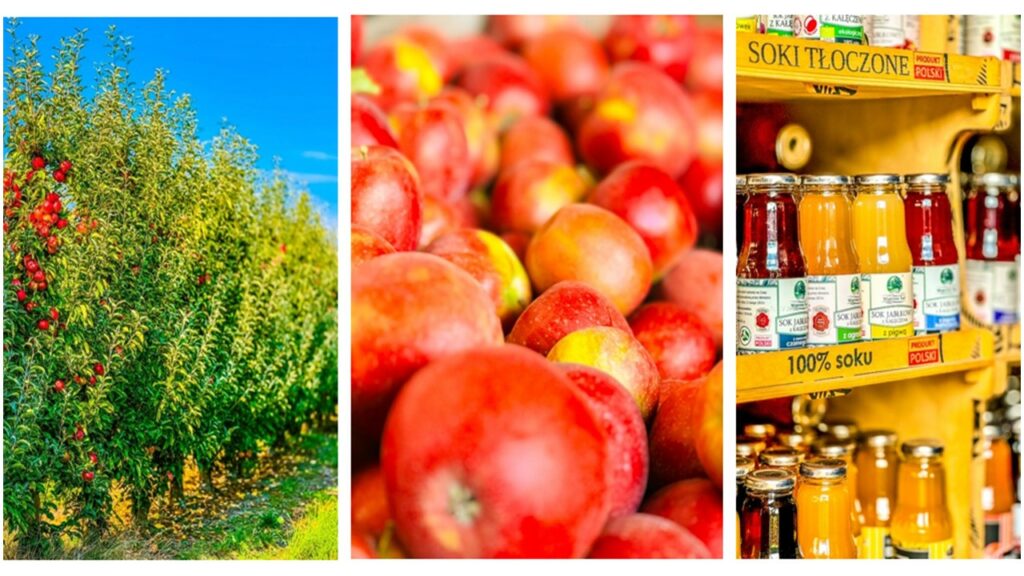Did you know that the apple is the symbol of the current Polish Presidency of the Council of the European Union?
Poland stands at the forefront of apple cultivation in Europe, boasting impressive statistics that highlight its significance in the industry:
• 150,000 hectares of apple orchards make Poland the largest apple-growing country in the EU
• Annual apple production reaches 4 million tonnes
• Over 80,500 orchards, the vast majority of them are family-owned
• 50–70% of the harvest is processed, especially into juices and concentrates.
In 2023, Poland was the second-largest apple exporter in Europe and seventh globally, with 817,000 tonnes of apples valued at nearly €398 million, marking a 32% increase from the previous year. Polish apples go primarily to the markets of EU countries, especially Germany, Romania, Spain, Sweden, the Netherlands and France. Among non-EU countries importing Polish apples are: Egypt, Kazakhstan, India, Saudi Arabia and the United Arab Emirates.
Apple cultivation in Poland has a long and rich tradition – dating back to medieval times, when apple trees were grown in monastery gardens and near royal courts. Over the centuries, apples have become not only an economic driver but also a cultural symbol of Polish agriculture. Today, Poland boasts a remarkable diversity of apple cultivars, with several dozen varieties officially registered. Popular varieties include Idared, Jonagold, Champion, Ligol, Golden Delicious, Red Delicious, Gala, Gloster, Lobo, and Cortland.
As part of the AgriDataValues project, one of our pilots – „Wiatrowy Sad” is a medium-sized, family-owned apple orchard in Poland. With the help of innovative smart farming solutions developed within the project, this orchard is looking forward to increasing production efficiency, reducing input costs, and adapting more effectively to climate and market challenges.


